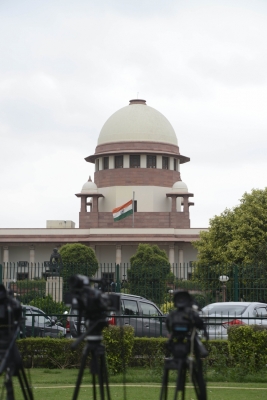New Delhi, December 13, 2013 : .The Supreme Court said Monday that the court of district judges is likely to serve as the foundational court and should therefore be free to determine a case on its merits rather than “rendering convictions on a moral platform”.M.M.and Justice Sanjay Kishan Kaul form a bench.Sundresh stated that courts can have constraints at times and that different judges are making different decisions, including the trial and appellate courts.
It said that such decisions made because of institutional limitations do not bode well.
According to the top court: “The foundational court is the district judiciary.Therefore, it should be free to determine a case on its merits or otherwise, it could become a stereotypical one that renders conviction on a moral platform.It is best to avoid indictment or condemnation for a decision made, after considering all of the material.
According to the bench, every case is unique and has its own path to the truth.It’s the role of the court to do this.The truth must be determined based on all evidence.There is no place for subjectivity or the nature of offenses that affect its performance.
It added that there is a hierarchy of courts for dealing with cases.
Justice Sundresh, the judge for the bench, stated that an appellate court should not require the trial court act in a certain way depending on the case’s sensitivity.
He noted that it is important to appreciate if the trial court resolves a case on its merits, despite its sensitive nature.However, he also said that an appellate court should exercise caution before commenting.
These observations were made by the top court while ignoring an order of Karnataka High Court, which overturned a court order that acquitted two men charged with murdering a police officer.They were sentenced to life imprisonment.
The top court heard the appeals by the accused challenging the order.
The top court said: “Certainly, the court of first instance has its own advantages in delivering its verdict, which is to see the witnesses in person while they depose.The appellate court is expected to involve itself in a deeper, studied scrutiny of not only the evidence before it, but is duty bound to satisfy itself whether the decision of the trial court is both possible and plausible view.”
The top court noted when two views are possible, the one taken by the trial court in a case of acquittal is to be followed on the touchstone of liberty along with the advantage of having seen the witnesses.”Article 21 of the Constitution, also aids the accused after acquittal in a certain way, though not absolute,” it added.
The Karnataka government had filed an appeal in the high court, which reversed the acquittal order and noted that the trial court had “no idea of the concept of dying declaration and the principle governing it”.
The top court noted that the high court should have refrained from making strong comments on the judgment made by the trial court.”Thus, the appeals are accordingly allowed.Consequently, the orders of conviction passed by the high court stand set aside,” said the bench.
ss/vd
#freedom #dont #judge #moral #grounds #Delhi #Delhi #New Delhi #Karnataka #Idea







